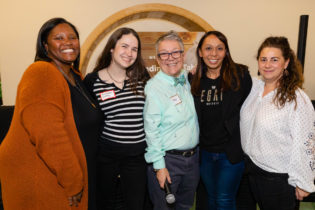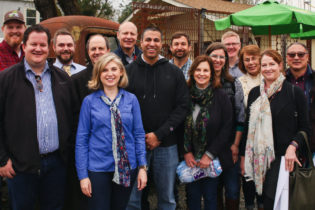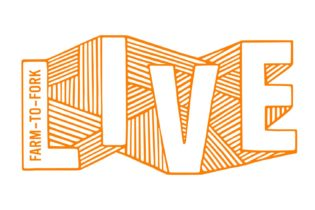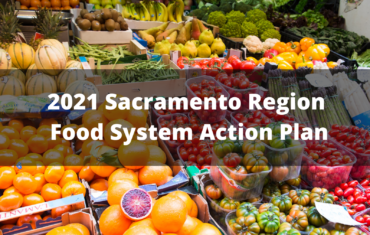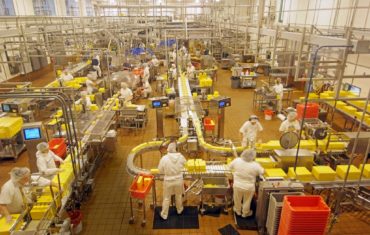Farm-to-Fork LIVE Hosts Webinar on Regional Emergency Food System Response
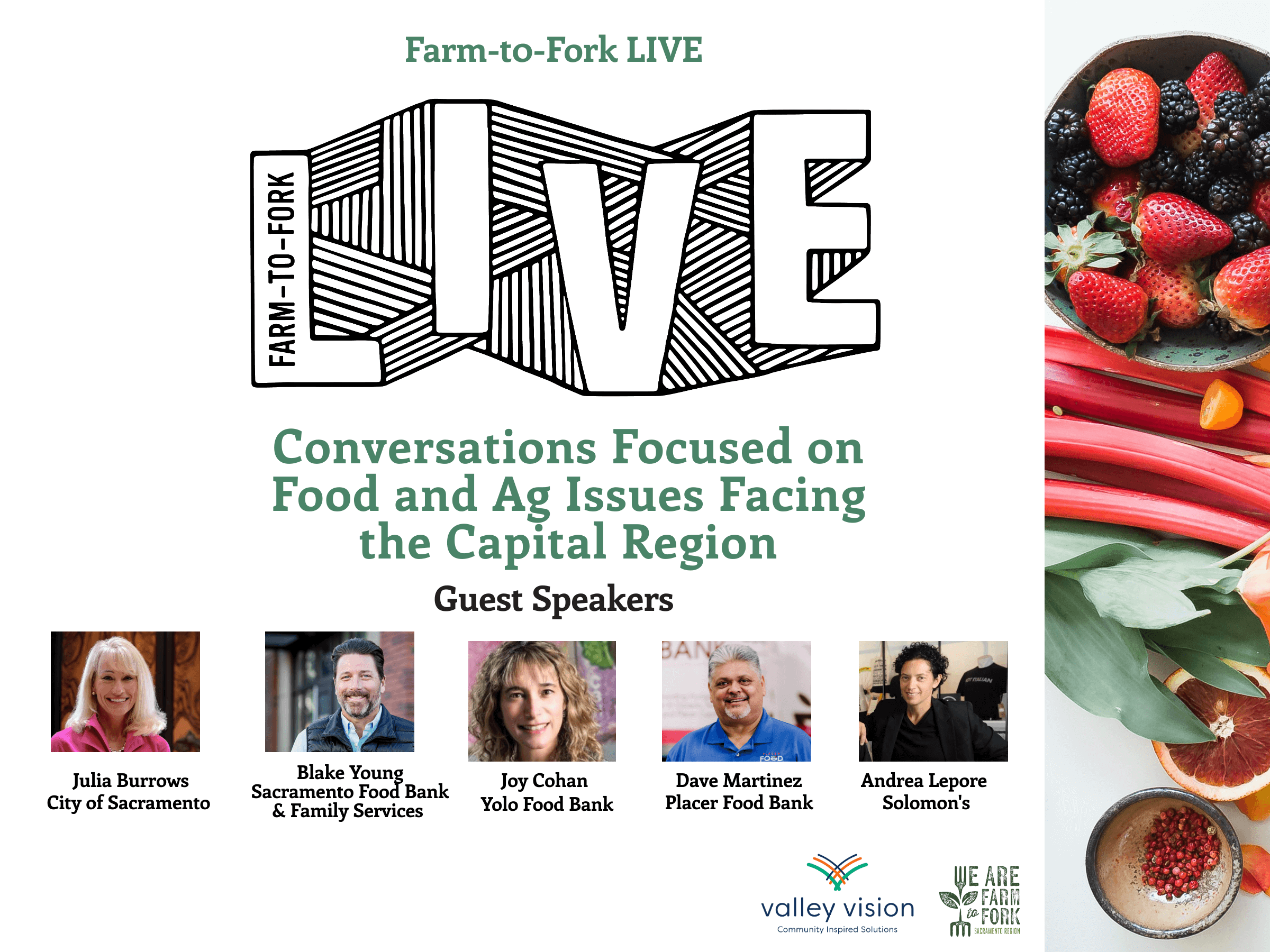
Since the start of COVID-19, families have been facing an uncertain and precarious new reality. From lost jobs to lost income, many worry about how they are going to provide for their families and put food on the table. What has not been uncertain, however, is the vigilance and drive of our region’s leadership that have joined together to make sure communities are taken care, of especially when it comes to addressing food insecurity and food access.
On April 17th, We Are Farm to Fork hosted its second Farm-to-Fork LIVE Webinar focusing on the emergency food system response. Speakers included Julia Burrows, City of Sacramento Mayor’s Office; Blake Young, Sacramento Food Bank and Family Services; Joy Cohan, Yolo Food Bank, Dave Martinez, Placer Food Bank; Andrea Lepore, Solomon’s Deli. Emma Koefoed, Project Manager at Valley Vision, moderated the discussion that focused on how each is addressing the needs of low-income families, elderly citizens, students, refugees, the medically fragile, homeless, and those transitioning into food insecure situations for the first time.
The City of Sacramento and the Mayor’s office have been extraordinary in launching initiatives to support the community. With so many people in need, Julia Burrows, Senior Policy Advisor to Mayor Darrell Steinberg, ensured that the City remains committed to three main objectives during this time. The first is to convene leadership as a way to match available resources to those who are seeking specific support. The City staff has since started facilitating weekly calls among community-based organizations, non-profits, and partners in the food space. Secondly, they are working on fundraising efforts to provide financial assistance back to the businesses. In partnership with Councilman Schenirer, Donate4 Sacramento was launched as an initiative to provide support for local families, individuals, non-profit, and small businesses struggling through the crisis. They have raised 1.2 million dollars thus far. Another example is the collaboration with the Family Meal Program, a project launched by local chefs, who are now able to distribute daily meals to 11 senior and assisted living facilities with the support of Paratransit, an achievement made possible through these partner relationships. Third, using the Mayor as a vessel to communicate information back out into the community and as an advocate for policy changes at the state and federal level.
Similarly, Sacramento Food Bank and Family Services (SFBFS) is working with the City to collaborate on ways to extend their reach into the community. Before COVID-19, SFBFS served about 150,000 individuals from 220 locations per month. Beginning in March, they, like many other food banks, had several distribution locations close due to the fact that many of their volunteer staff are senior citizens. Since then, they have centered operations on 30 locations that they identified to have the capacity to manage the increase of food distribution needs. With the support of the California National Guard and Conservation Corps, they have ramped up their efforts with two mega distribution drive-by pick up locations and continue to move food out the door. Blake Young, CEO of Sacramento Food Bank and Family Services, noted that with public support, donations, and partnerships, like with the City of Sacramento and companies like Raley’s Food For Families Program, they have been able to continue their mission and serve the growing communities need. To find distribution sites closest to you use the Food Finder online tool.
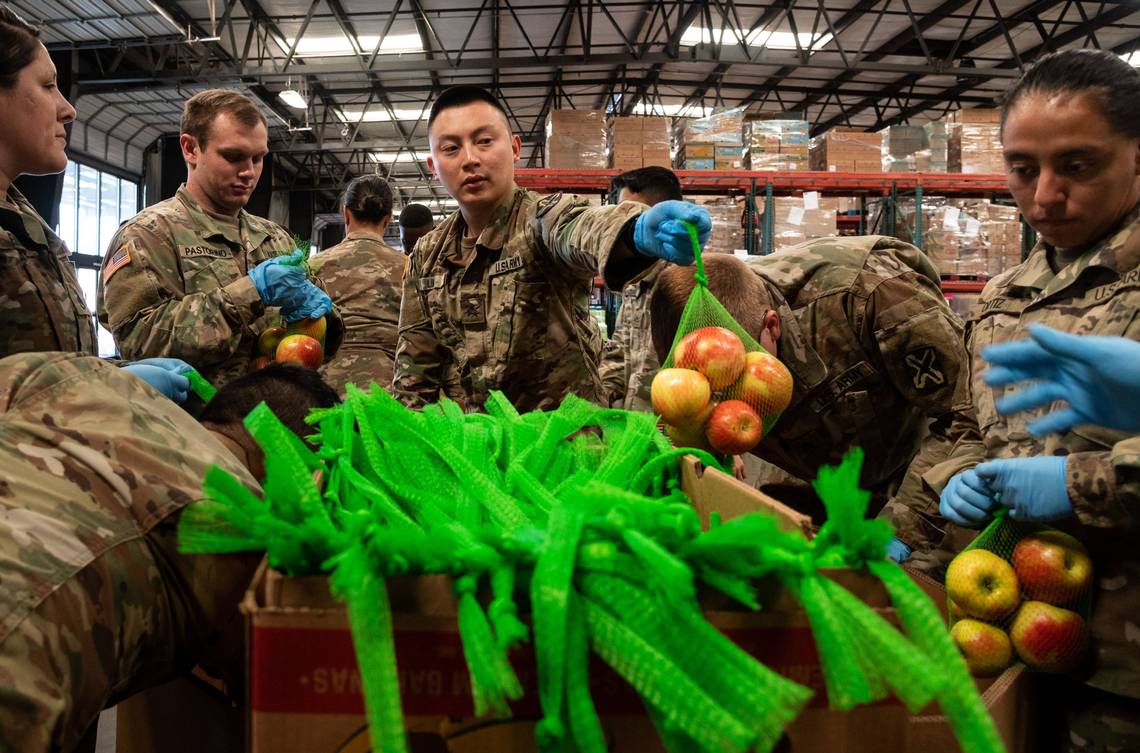
Yolo Food Bank (YFB) serves more than 52,000 people in 19,000 households every month to help end hunger and malnutrition. Joy Cohan, Yolo Food Bank Director of Philanthropic Engagement, outlined with a majority of their clients residing in rural areas, reaching those in need already had its built-in challenges. On top of continuing to serve their normal clients, they are the leading effort on food response for Yolo. With the help of the Yolo Office of Emergency Services, the Yolo Food Bank has developed a delivery model targeting at-home seniors. In the last five weeks, they have served 2,000 households and 4,200 individuals. In another partnership with the County of Yolo, they are also providing three meals a day to homeless populations that are sheltering in local hotels. These meals are being prepared by staff at the Food Bank and delivered by Yolo Bus; as most public transportation is currently out of service or on reduced routes. Yolo Food Bank acknowledges that they still face an uphill battle, as funding remains a critical need to carry out these programs as residents continue to adhere to stay-to-home orders.
Dave Martinez, Executive Director for Placer Food Bank, helps serve over 80,000 individuals living in El Dorado, Nevada, and Placer Counties. Facing a 25% uptick service needs, so far, they have been able to manage the increase but could potentially start facing food shortages in 3-4 weeks. Currently, operating through 70 partner sites, Dave was pleased to report little disruption to his daily operation as his networks have remained resilient. Still, he gave credit to local churches in which have been assisting with deliveries to seniors after they also saw a significant drop in the number of their volunteer services staff. Placer Food Bank is now gearing up to facilitate mass distributions, similar to what SFBFS is doing at Christian Brothers and Encina High Schools, to help reach as many in the community as possible.
In an innovative approach to prevent further outbreaks of COVID-19 among the most vulnerable Solomon’s, Sacramento Covered, Sutter Health, and the City of Sacramento partnered to provide meals for the elderly, unsheltered and medically-fragile individuals. Within 24 hours of shuttering the doors due to the virus, a small kitchen crew was brought in to plan, prep, and cook the meals from scratch. Sacramento Covered’s Community Health Workers help deliver meals to 25 sites daily and have distributed approximately 10,000 meals. Moreover, Andrea is well aware Solomon’s will still face a new normal when things come back online, assessing that it will not be like “turning on a light switch”. It is projected that 80% of the nation’s restaurants could face permanent closures; with limited access to small business loans and financial aid, Andrea, like others, is strategizing simultaneously on projects and plans to address near term and long strategies to keep the doors open and her staff employed.
Valley Vision will continue to highlight the important work that our food system partners are doing to support food access and recovery programs. Please sign up for our Food For Thought Newsletter to receive up to date information and announcements about what is happening in our region.
You can watch the entire interview on Valley Vision’s YouTube Channel. Please visit Hands-On Sacramento to find available volunteer opportunities in your area.
Emma Koefoed is a Valley Vision Project Manager contributing to the 21st Century Workforce and Food and Agriculture impact areas.
